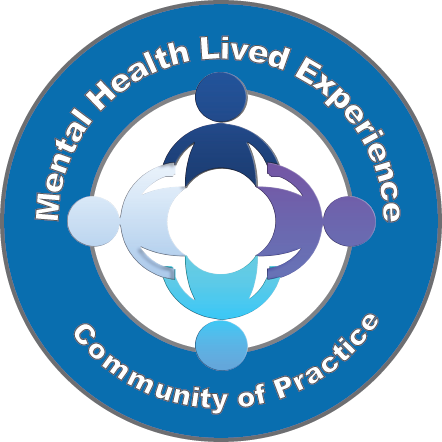Consensus Statement | VA MHLE COP

November 2020
Prevailing beliefs about the impact of mental illness are negative.1-3 Society generally views people with mental illness as being less capable, valuable, reliable and skilled than people who are not managing a mental health concern.4,5 This stigma and discrimination significantly impacts the lives of people living with mental illness.6,7 The same stigma and discrimination often limits the extent to which those who manage mental health challenges are permitted to share their gifts, subsequently depriving the rest of our culture many of the assets and skills that we can bring to bear on the problems faced by our nation and society. 5,8-10
Fear of negative consequences often inhibits openness about mental illness with family, friends and colleagues.9, 11,12 Thus, the current distorted perspective on mental illness continues to cause harm to the 50% of Americans who manage or have managed mental health concerns.5, 6,12-14
We can directly counter current negative stereotypes by sharing the stories of resilience, strength and positive contributions that are part of the everyday lives of people who manage mental health challenges.4,15,16 To that end, we encourage people with lived experience to share their experiences when it is safe to do so, when it supports their continued personal growth, and when it reduces self-stigma.12,16 Doing so will increase awareness of the value of people living with mental illness and reduce the stigma and discrimination associated with stereotypes.1,16,17 Advocacy-motivated “coming out” among successful mental health providers, as well as others in Jamison’s “silent successful,” will help end the current silence that harms everyone in our culture. 4,15,18
Professionals with and without lived experience should evaluate and address any beliefs that perpetuate negative stigma about people living with mental health concerns. Mental health providers maintain stigma because we reside in a culture of nondisclosure. 16,17 Our allies can support our efforts to be open about our full selves by treating all people with dignity and speaking out against discrimination. We challenge everyone to take action to create an environment where people with lived experience are supported and the strength that comes from their unique experiences is valued.19
References
- Corrigan, P. W. (2005). On the stigma of mental illness: Practical strategies for research and social change. Washington, DC: American Psychological Association.
- Green-Shortridge, T.M., Britt, T.W. & Castro, C.A. (2007). The stigma of mental health problems in the military. Military Medicine, 172, 157-161.
- Peris, T.S., Teachman, B.A. & Nosek, B.A. (2008). Implicit and explicit stigma of mental illness. Journal of Nervous and Mental Disease, 196, 752-760.
- Corrigan, P.W. (2012). Research and the elimination of the stigma of mental illness. British Journal of Psychiatry, 201, 7-8.
- Kosyluk, K.A., Corrigan, P.W., & Landis, R.S. (2014). Employer Stigma as a mediator between past and future hiring behavior. Rehabilitation Counseling Bulletin, 57, 102-108.
- Corrigan, P.W., Mittal, D., Reaves, C.M., Haynes, T.F., Han, X., Morris, S. & Greer, S. (2014). Mental health stigma and primary care decisions. Psychiatry Research, 218, 35-38.
- Rotenberg, K.J., Bharathi, C., Dabies, H. & Finch, T (2013). Bulimic symptoms and the social withdrawal syndrome. Eating Behaviors, 14, 281-284.
- Beehler, S., Clark, J., & Eisen, S. (2014). Participant Experiences in Peer- and Clinician-Facilitated Mental Health Recovery Groups for Veterans. Psychiatric Rehabilitation Journal, 37(1) 43-50.
- Hyman, I. Self-Disclosure and Its Impact on Individuals Who Receive Mental Health Services. HHS Pub. No. (SMA)-08-4337 Rockville, MD. Center for Mental Health Services, Substance Abuse and Mental Health Services Administration, 2008.
- van Knippenberg, D., & Schippers, M. (2007). Workgroup Diversity. Annual Review of Psychology, (58) 515-541.
- Boyd, J. E., Graunke, B., Frese, F. J., Jones, J. T., Adkins, J. W., & Bassman, R. (2016). State psychology licensure questions about mental illness and compliance with the Americans with Disabilities Act. American Journal of Orthopsychiatry, 86(6), 620.
- Jones, K., & King, E. (2014). Managing Concealable Stigmas at Work: A Review and Multilevel Model. Journal of Management, 40(5), 1466-1494.
- Centers for Disease Control, 2008. http://www.cdc.gov/mentalhealth/
- Cohen, P. & Cohen, J. (1984). The clinician’s illusion. Archives of General Psychiatry, 41, 1178-1182.
- Corrigan, P.W., Morris, S.B., Michaels, P.J., Rafacz, J.D. & Rusch, N. C. (2012). Challenging the public stigma of mental illness: A meta-analysis of outcome studies. Psychiatric Services, 63, 963-973.
- Harris, J. I., Leskela, J., Hoffman-Konn, L. (2016). Provider lived experience and stigma. American Journal of Orthopsychiatry, 86, 604-609.
- Servais, L.M. & Saunders, S.M. (2007). Clinical psychologists’ perceptions of persons with mental illness. Professional Psychology: Research and Practice, 38, 214-219.
- Jamison, K.R. (1997) An Unquiet Mind. New York: A.A. Knopf.
- Welder, L.E., & Salzer, M.S. (2016). Creating Welcoming Work Environments Within Mental Health Agencies: Recommendations for Supporting Agency Staff with Mental Health Conditions. Temple University Collaborative on Community Inclusion of Individuals with Psychiatric Disabilities.



















